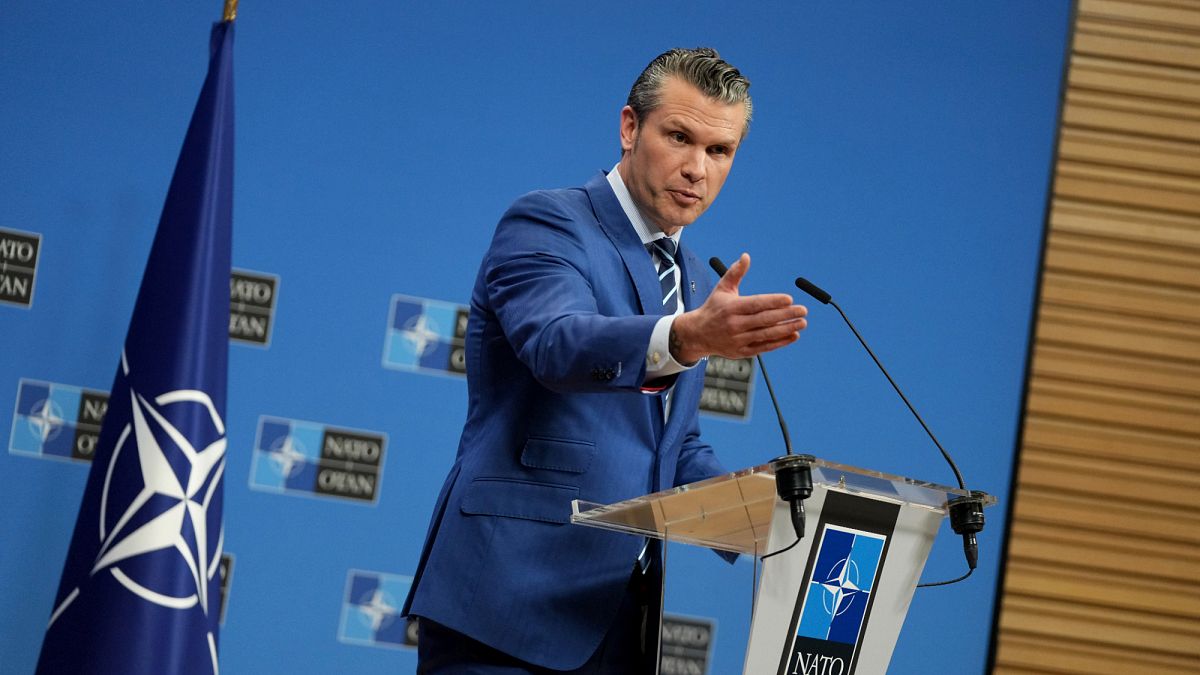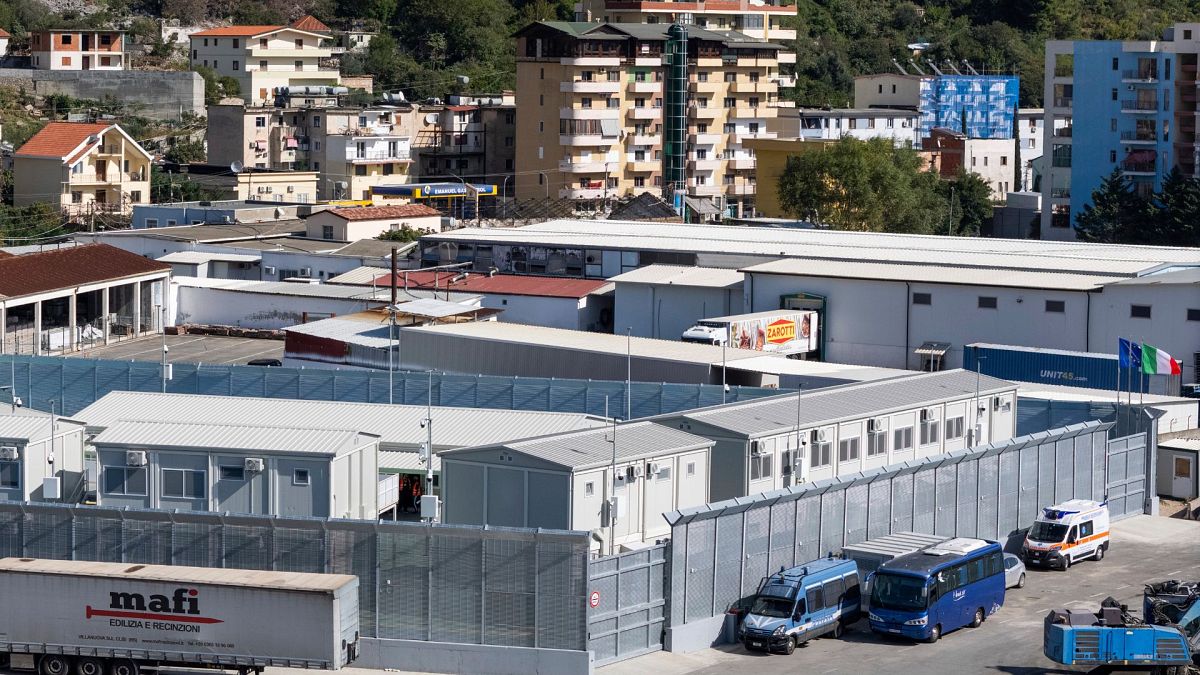The AI chip export rules issued by the Biden administration do not include Europe as a single market, which could cause issues experts say.
US President Donald Trump might have the upper hand in dealing with European policymakers following the outgoing Biden administration's new tech restriction that could hinder Europe’s artificial intelligence (AI) ambitions.
The Biden administration last week unveiled rules that will limit the flow of advanced AI chips from US companies to all but 18 countries.
Countries that will not have any access to US chips include China, Russia, Iran, and North Korea.
Some countries are on a special tier one list and will have full access to US chips, such as EU member states France, Belgium, and Spain, but not every European country has been included on the list.
Those on the tier two list will see the number of AI chips - called graphics processing units (GPUs) - capped at 50,000 unless they have a special license.
For reference, last year Microsoft reportedly bought 485,000 Hopper GPUs made by US chip maker Nvidia, and the new US export rules mean that the countries that did not make tier one will not have access to the many chips needed to build data centres for training AI models.
Nvidia also controls between 70 to 95 per cent of the market for AI chips, according to Mizuho Securities.
EU security
Some countries in the tier two bracket include Poland, Portugal, Greece, and Luxembourg.
Poland not being included in the first tier could pose a problem in the EU as the country "has become the security anchor of Eastern Europe due to their role in coalition building and leading NATO's kind of drive in support for Ukraine," Matthew Eitel, chief of staff at the Center for European Policy Analysis (CEPA) think tank, told Euronews Next.
However, he said that Trump’s past suggestions that Ukraine is a global war but that Europe should take responsibility for it is at odds with major American tech companies investing human capital as well as actual capital into Poland.
"It'll be interesting to see how they link this to broader discussions about European leadership and what it means for the future of the transatlantic alliance," he added.
For its part, Europe has voiced its worry. European Commission tech chief Henna Virkkunen and trade chief Maroš Šefčovič said last week they were "concerned" about the measures.
"We believe it is also in the US economic and security interest that the EU buys advanced AI chips from the US without limitations: we cooperate closely, in particular in the field of security, and represent an economic opportunity for the US, not a security risk," the commissioners said.
The commissioners said they had shared their concerns with the Biden administration and are “looking forward to engaging constructively with the next US administration".
The US argues that the reason for the curbs is to do with national security rationale, but "to some degree, it almost treats AI and compute capability as nuclear weapons," said Antonia Hmaidi, a senior analyst at the Mercator Institute for China Studies (Merics) think tank.
"It seems like these export controls are designed not only to restrict some narrow applications of AI but instead to really help keep US supremacy in AI," she told Euronews Next.
This could increase the digital divide with the technology that was pegged to bridge the gap actually opening it.
As for Europe, which operates as a single market, the export controls will pose many questions and much confusion.
If for example, you were in Germany (tier one), and ordered chips that you wanted to take across the border to Austria (tier two), there are no customs checks on regular exports between the countries. So, would the importer then have to apply for a license in Austria?
This could prove difficult as some EU borders have their own export controls that are not always mirrored at the EU level.
Hmaidi said it was "baffling" why the US picked some European countries and not others but that one potential reason was because some EU countries are not as advanced in AI development as others.
But this, she said, is "a little short-sighted because we don't know what applications there are or there will be in the future".
"Portugal [tier two] at this point won't be buying big data centres. But in five years, the way diffusion of these technologies usually works, they might be," she added.
Changing Trump’s mind
It is unclear how Trump will react to the chip rule when he is sworn in as the 47th US President on Monday. Trump will be able to intervene as the rules cannot be enforced for 120 days.
But Eitel said that the rules could be seen as "potential leverage" by Trump and the incoming administration "for other broader discussions around European security in general".
He said that the regulatory means for Trump to move a European country to a different tier are pretty easy but it "depends on political will".
"There is a world in which the Trump administration interprets this in a way that we are not going to raise your cap unless you make NATO's spending commitments and commit to European peacekeeping efforts in Ukraine," he added.
However, leverage may be more on security grounds than on tech regulation ones.
Europe’s regulatory relationship with US tech companies has been strained with companies such as Google and Apple coming under fire from EU antitrust rules such as the Digital Markets Act (DMA).
However, Hmaidi said she did not think that Trump could use the chips rules to bend Europe’s political will as the new framework is about national security.
"In the US mind, it is very, very difficult to make an argument to his own people, not necessarily ordinary Americans, but especially people in his administration that are national security-minded, that he's willing to sell national security in exchange for [Elon] Musk getting better access or something," she said, adding that it would be easier for Trump to do so with tariffs.
Will Europe turn to China?
If Europe cannot get the US chips it wants, there may be other options in the distant future.
Europe cannot produce enough of its own AI chips for the bloc, despite the Dutch economy minister Dirk Beljaarts pushing for a "coalition of the willing" to strengthen domestic computer chip industries and the European Chips Act, which aims to boost chip competitiveness.
Europe is at an advantage in quantum and chip design, which is largely due to Dutch company ASML. However, Europe is not quite there when it comes to hard-nosed manufacturing of AI-capable GPUs.
Other countries could instead turn to China for AI-enabled chips, but probably not in the near future.
Companies such as Huawei are bringing out their own chips, and China is already heavily investing in AI technology as it is a key priority for the country.
Although European companies, as well as most countries, would probably prefer Nvidia’s more powerful chips than the Chinese ones, that will change at some point as China continues to make progress.
"We've seen Chinese startups release AI models that are just as good, if not better, than AI models from US companies, and they're doing it in ways that don't require access to the same high-quality chips that that US AI models are using or being trained on," said Eitel.
"I think that there are legitimate concerns that these very export controls that are aimed at slowing China's progress, could, in the long run, actually speed it up," he added.

 2 months ago
30
2 months ago
30






 We deliver critical software at unparalleled value and speed to help your business thrive
We deliver critical software at unparalleled value and speed to help your business thrive






 English (US) ·
English (US) ·